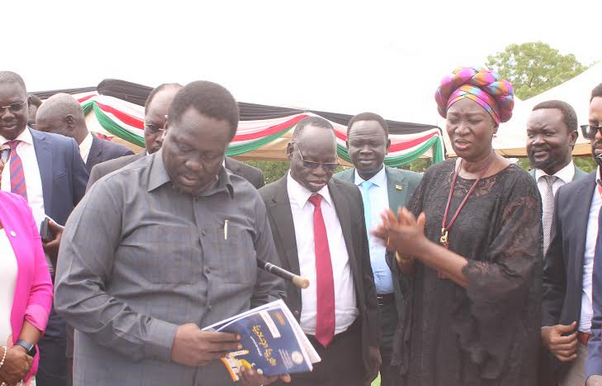South Sudan on Thursday introduced Arabic language and Islamic Religious Education into the country’s educational system.
Speaking during the launch of new textbooks in Juba, Hussein Abdelbagi Akol, the vice president in charge of the government’s service cluster, described the Introduction of the new subjects in the national curriculum as a remarkable step toward a more inclusive education system.
“The Introduction of Arabic language and Islamic Religious Education into our education curriculum is a remarkable step toward a more comprehensive and inclusive education system,” he said. “These core subjects which were previously missing in our new national curriculum will now be taught and play a vital role in enriching the academic experience of our learners.”
Abdelbagi said the incorporation of the two subjects into the national curriculum will not only address historical gaps but also embrace the cultural diversity and heritage enshrined in the constitution.
For her part, Awut Deng Acuil, the Minister of General Education and Instruction, said her ministry is working to have an inclusive curriculum that fosters the transformation of society to become more cohesive and united.
“As you can see, the textbooks for Arabic language and Islamic Religious Education were produced through a national initiative to complete the national curriculum. South Sudan is a diverse society and both Islam and Arabic language are a reality in our society,” she stated. “The SPLM recognized that and established the Islamic Council during the liberation struggle to look after the needs of the Muslims in the liberated areas.”
Meanwhile, Ahmed Ibrahim, the Acting Country Director of Save the Children South Sudan, said the new subjects will play a vital role in offering the learners the best possible education opportunities.
“If you want to change the future of South Sudan in general, we can change it through education. I am really happy that the Government of South Sudan put the right person to lead the vision and agenda,” Ibrahim said. “South Sudan also has a very collaborative civil society that not only speaks but also walks their talk.”
According to South Sudan’s Interim Constitution, English is the country’s official language and language of instruction as per the Education Act and Arabic is the second official language for instruction.




